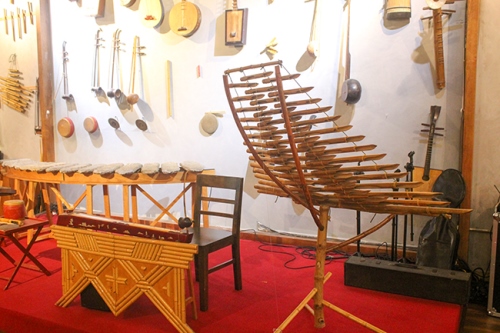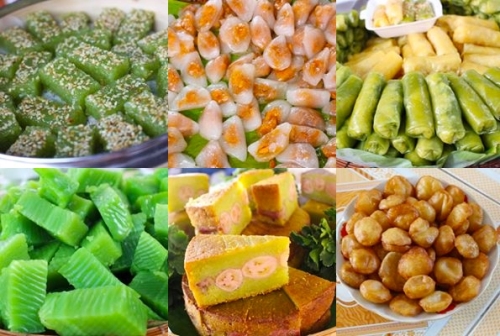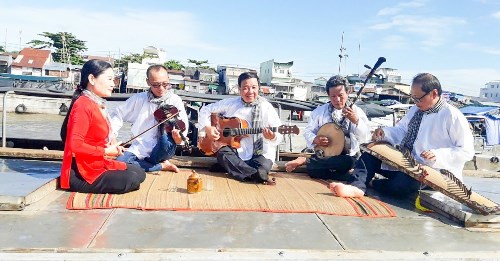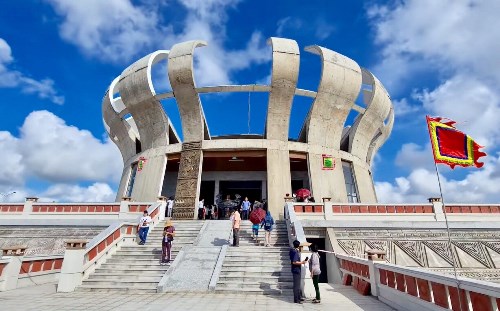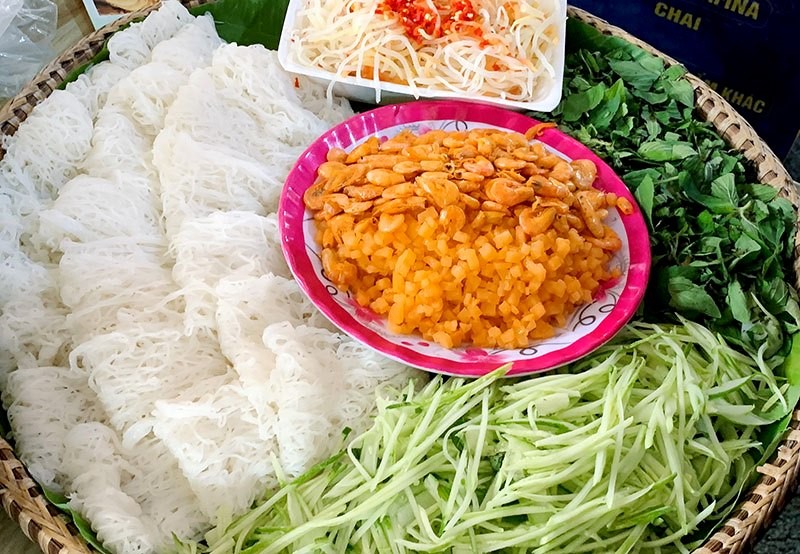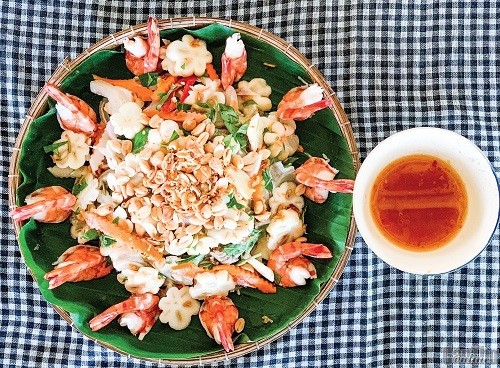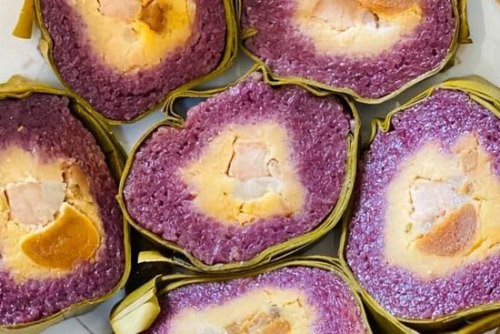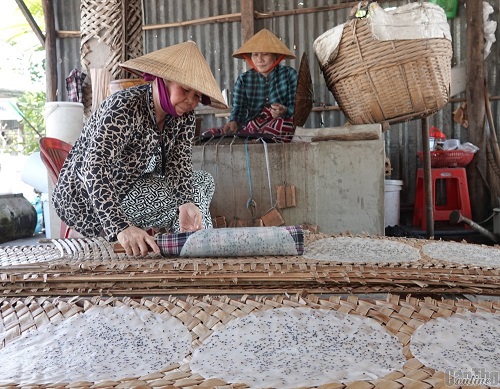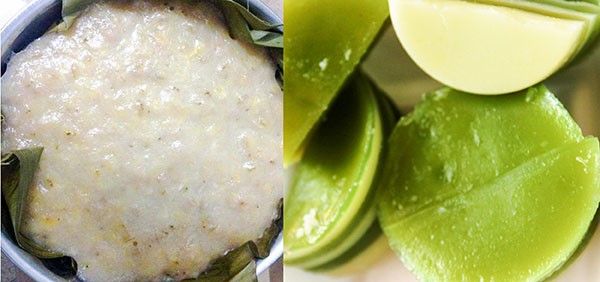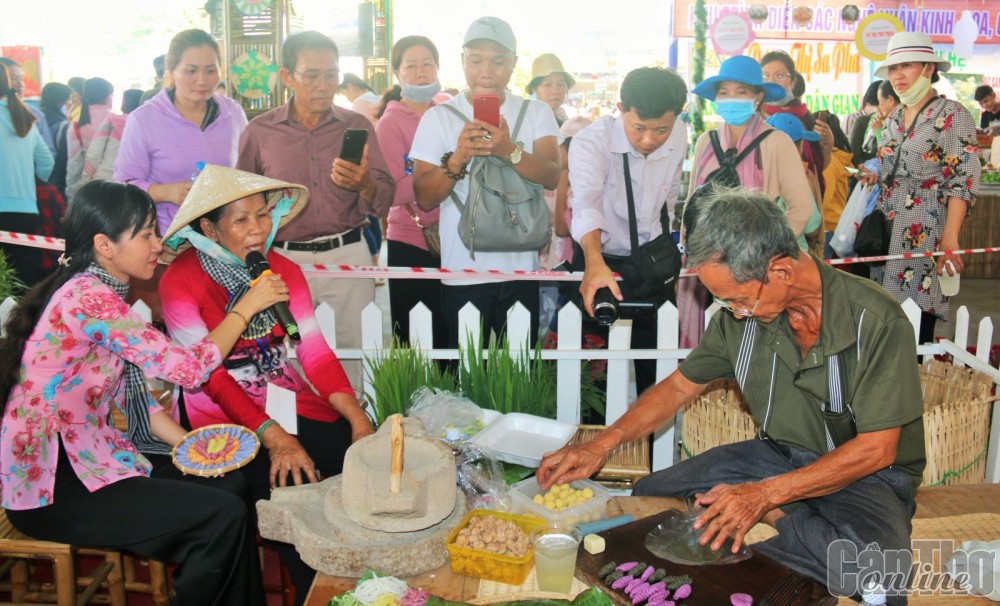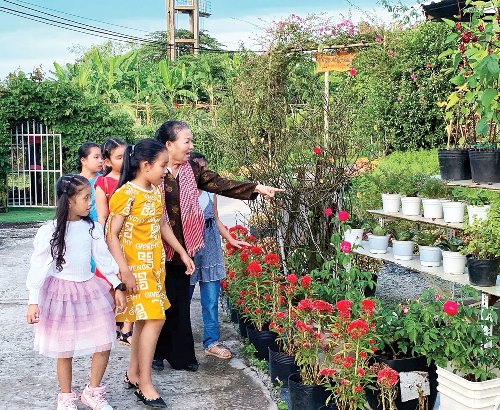
A survey from Booking.com shown that the COVID-19 pandemic is the main reason 59% of Vietnamese travelers seek to reduce their impact on the environment and local communities. Nearly 52% of tourists are willing to reduce waste and increase the use of recycled materials in their travel itineraries. 73% want to support community building and develop a more sustainable tourism industry. This indicates that raising awareness of responsible tourism is closely linked to ecotourism, community-based tourism, and agricultural tourism. More importantly, the model of agricultural tourism combined with education is becoming more popular.
“Ra vườn nhặt nắng” (into the garden to get sunlight), “Trồng thêm một cái cây” (Plant one more tree)... are the programs in the experience tour at Bao Gia Farm Camping (Hau Giang) aiming at young travelers and families. Bao Gia Farm Camping is a 7-hectare organic farm and has a team of engineers specializing in crops and animals. Visitors to Bao Gia Farm Camping will be instructed to harvest cucurbits, melons, vegetables, or take care of goats and rabbits. Knowledge and techniques regarding planting, harvesting, or livestock farming will be shared enthusiastically by the instructors on the farm. Ms. Tran My Thanh, a tourist, says: “Come here, I have more knowledge about nature, organic cultivation, agricultural tourism, and I am also in love with the culture of the Southwestern region”. Ms. Nguyen Thi Ngoc Suong, Project Manager of Bao Gia Farm Camping, says: “Our farm also focuses on indigenous cultural values. The products from the mat weaving village, bamboo and rattan weaving village ... are introduced to visitors through learning with the artisans in Bao Gia Farm. We want to provide visitors environmentally responsible travel experiences”. Bao Gia Farm Camping has built many tourism programs that connect with nature and indigenous cultures such as Be a Farmer, Family Outing, Summer Camp, Cultural Exchange, and thematic courses on traditional handicrafts.

Visit the cherry tomato poly house at Phan Nam Farm.
And Phan Nam Farm (An Giang) is famous for the program “Become a farmer for one day”. Moreover, there are engineers to give visitors guidance on exploring the orchard, harvesting clean vegetables, tubers, and fruits, learning the process of organic vegetable production, collecting medicinal herbs, etc. The farm has an area of 4ha, divided into two main zones. Zone A is about 2ha for the poly house, net house, food sector, and showroom. Zone B grows safe vegetables and medicinal herbs. The system of poly houses and net houses plants many kinds of trees following new technologies, such as melon, cucumber, cherry tomato, baby cucumber, etc. Mr. Tran Linh Tam, head of Phan Nam Farm, says: “Initially, we planted vegetables and fruits according to VietGAP standards. Then, our farm expanded to serve tourists, mainly students. We step by step form an agricultural tourism model combined with education”. Phan Nam Farm also has a program to train survival skills in the natural environment through a number of games.
In Can Tho, Canthofarm is famous for its farm tourism. Mr. Nguyen Van Phong, the owner of Canthofarm, says: “Previously, I was a teacher. Because of my love for agriculture, I researched and explored clean agriculture, gradually building a farm like today. Tourism activities in Canthofarm are mainly to share agricultural activities with students”. In addition to hydroponic vegetables, melon, Canthofarm also has many unique plants and varieties from other places. Canthofarm is becoming a place that many schools in the Mekong Delta want to visit and experience.
The model of agricultural tourism combined with education is considered a sustainable development direction of green tourism and responsible tourism. The main activity of this model is agricultural production, tourism is just a part of the chain, so it is less affected by external forces. Mr. Tran Linh Tam, head of Phan Nam Farm, says: “When the COVID-19 pandemic remains complicated and unpredicted, we limit our tourism activities. Instead, we focus on agricultural production and research varieties and plants for stable output. Tourism activities on the farm focus on sharing and spreading agricultural values, local culture to the students”. Having the same point of view, Ms. Nguyen Thi Ngoc Suong, Project Manager Bao Gia Farm Camping, says: “During the temporary suspension of receiving tourists due to COVID-19 pandemic, we still produce agricultural products and continue to explore, create new products. Besides, we also create new tourism products such as mental healthcare and soft skills courses”. Bao Gia Farm has launched a new program named “Farming and Art Therapy” - a combination of farming and arts, and the program has received high praise from visitors.

Tourists learn how to care for rabbits at Bao Gia Farm Camping.
Under the strategy on Vietnam’s tourism development until 2020, vision to 2030, Vietnam will develop green tourism products, respect natural elements, and local cultures. These are the solutions for Vietnam to develop sustainable tourism. Agricultural tourism combined with education meets that trend by helping people learn how to be close to nature as well as preserving cultural values, traditional agricultural village community spaces, and natural products.
Source: Can Tho Newspaper - Translated by Hoang Dat





